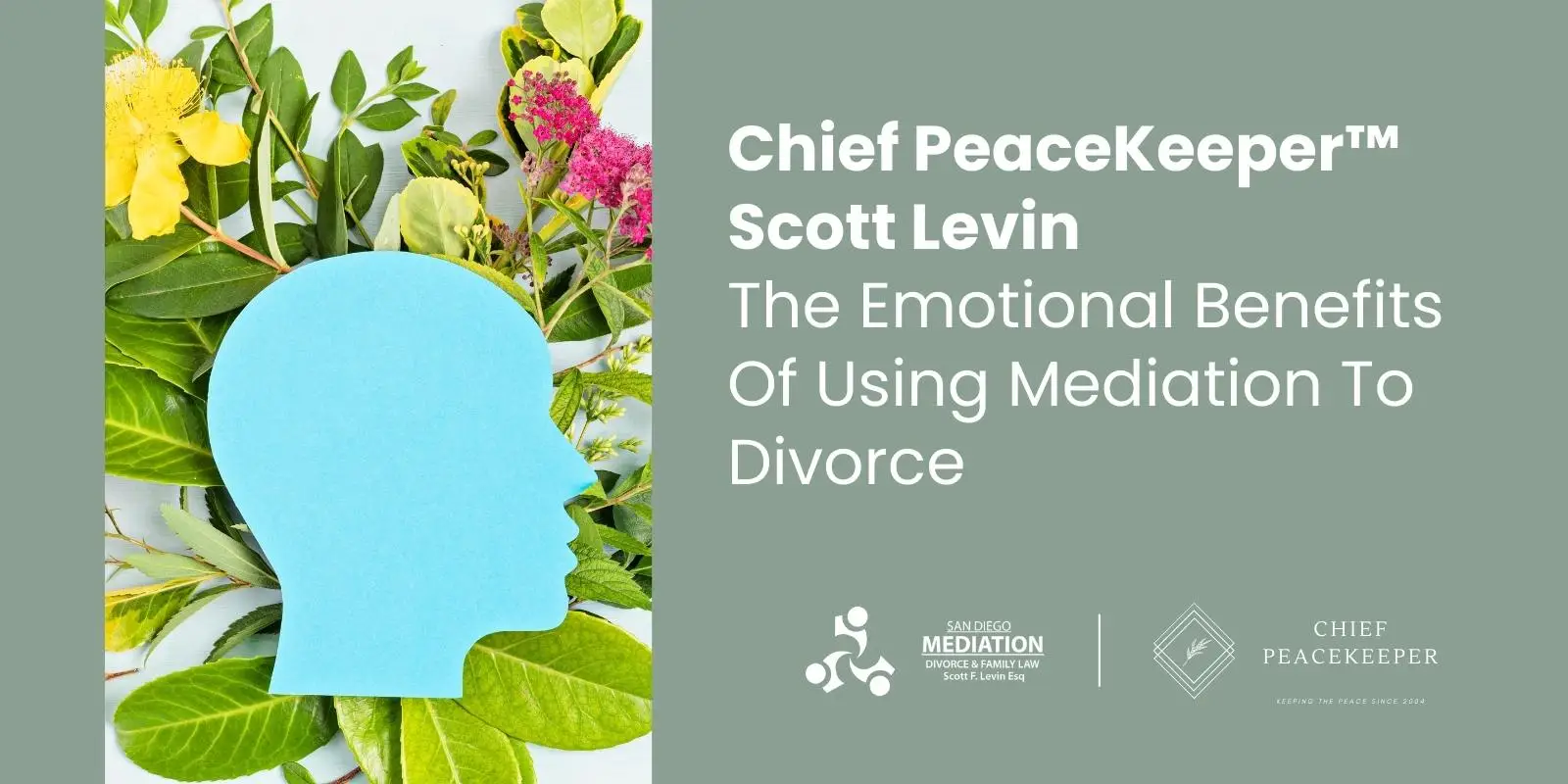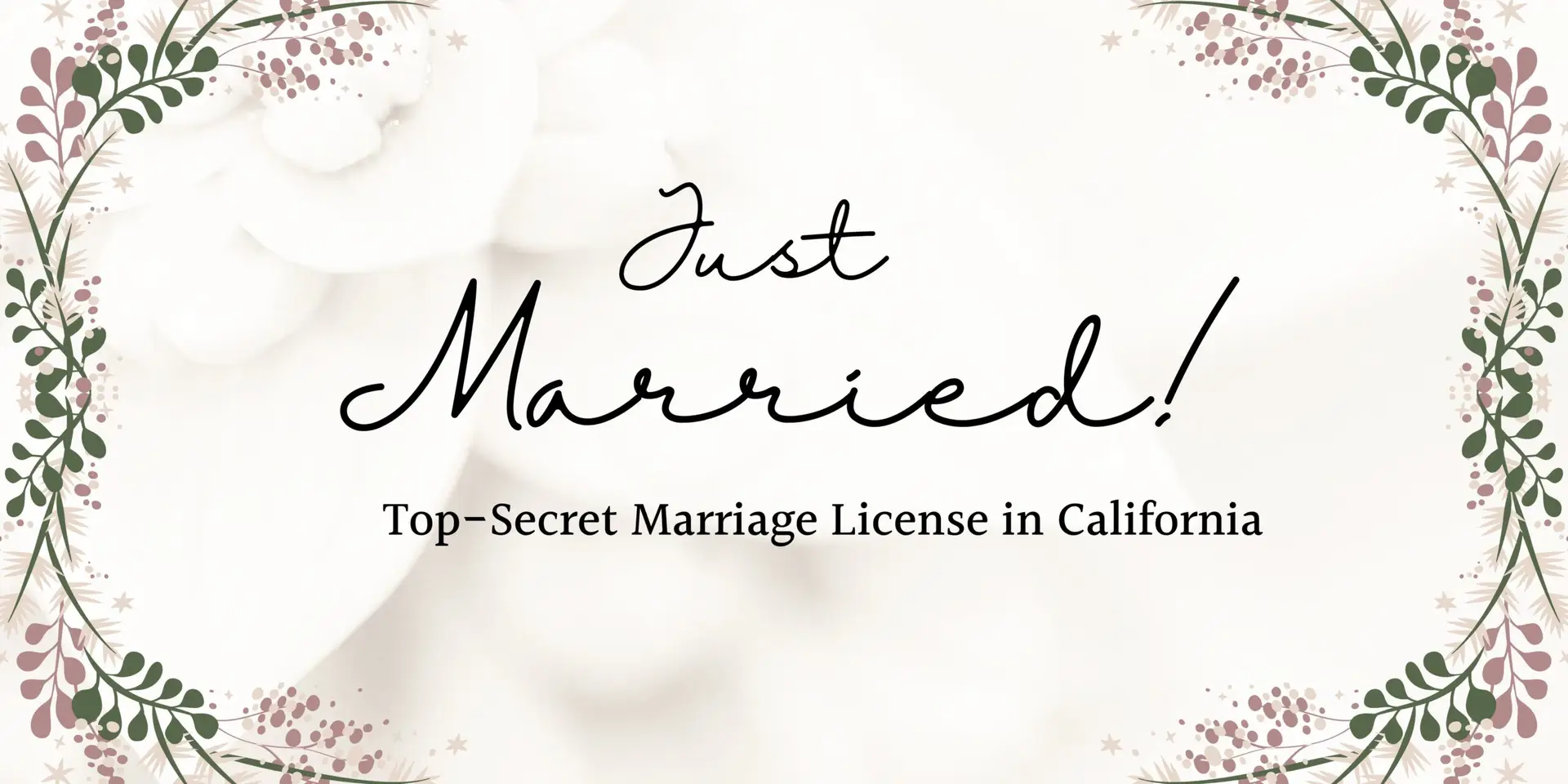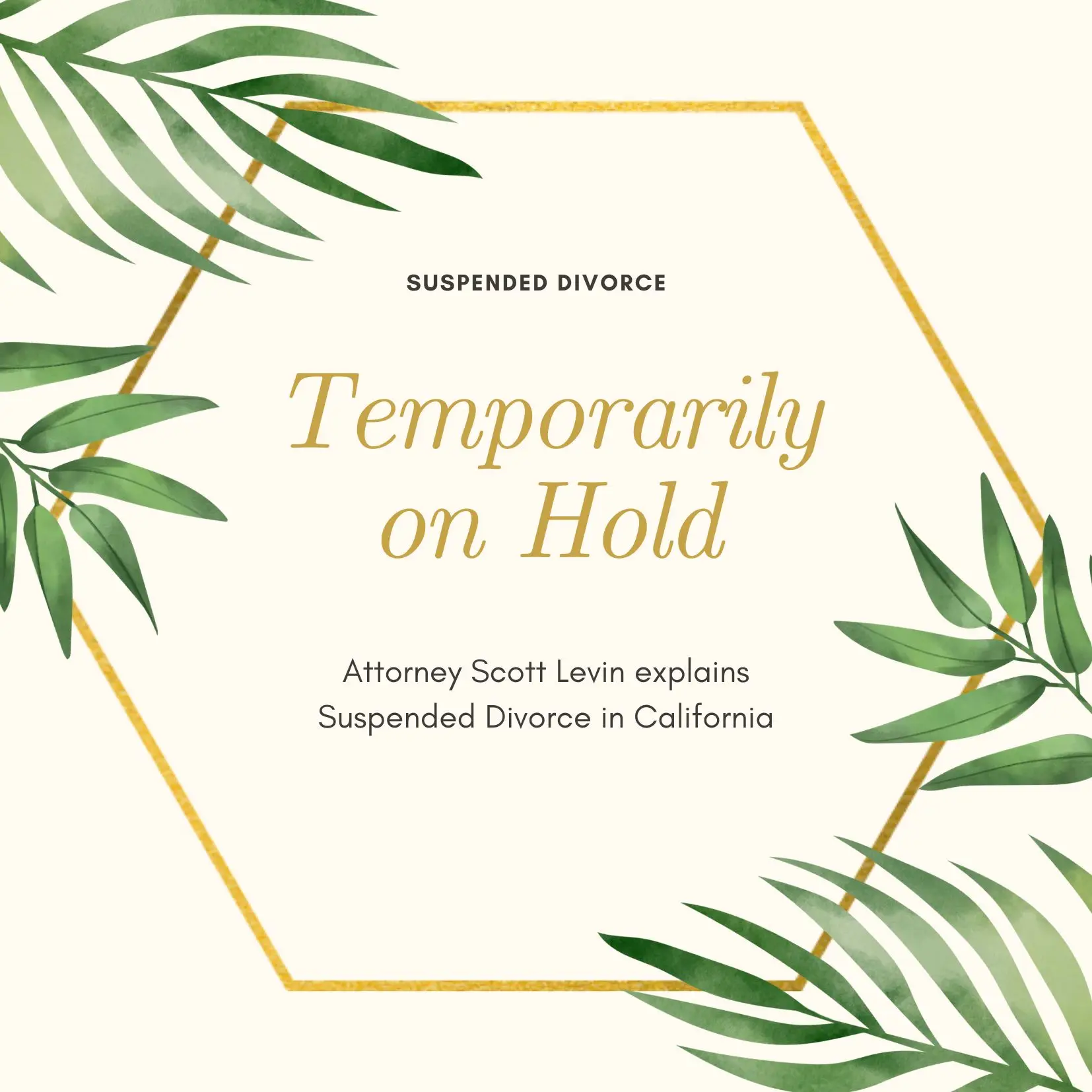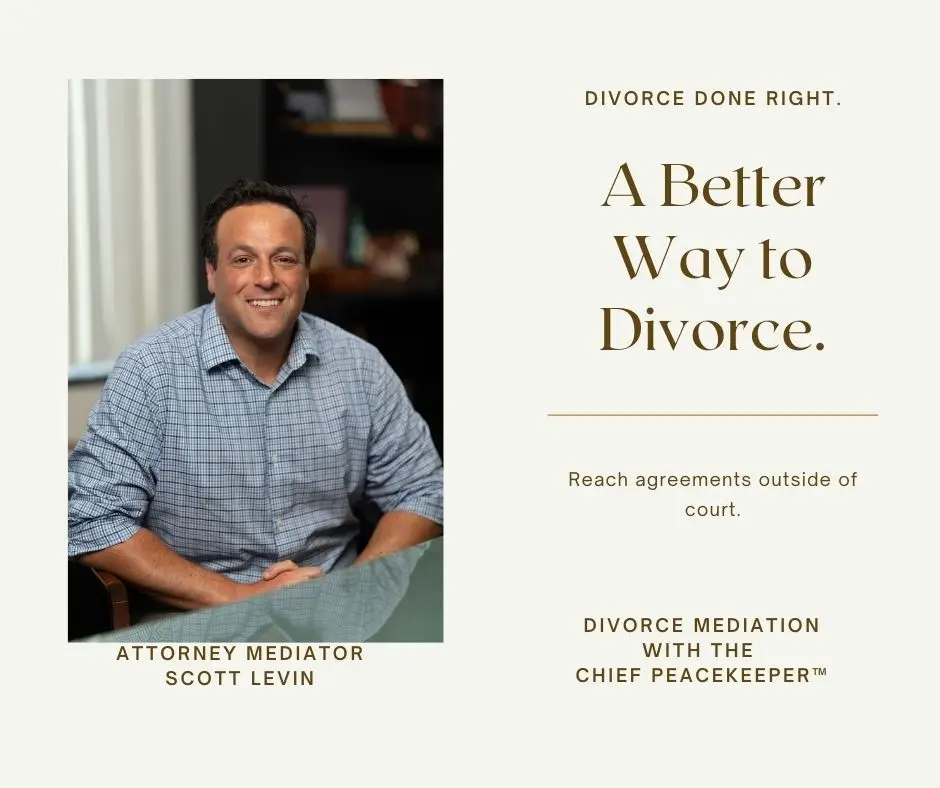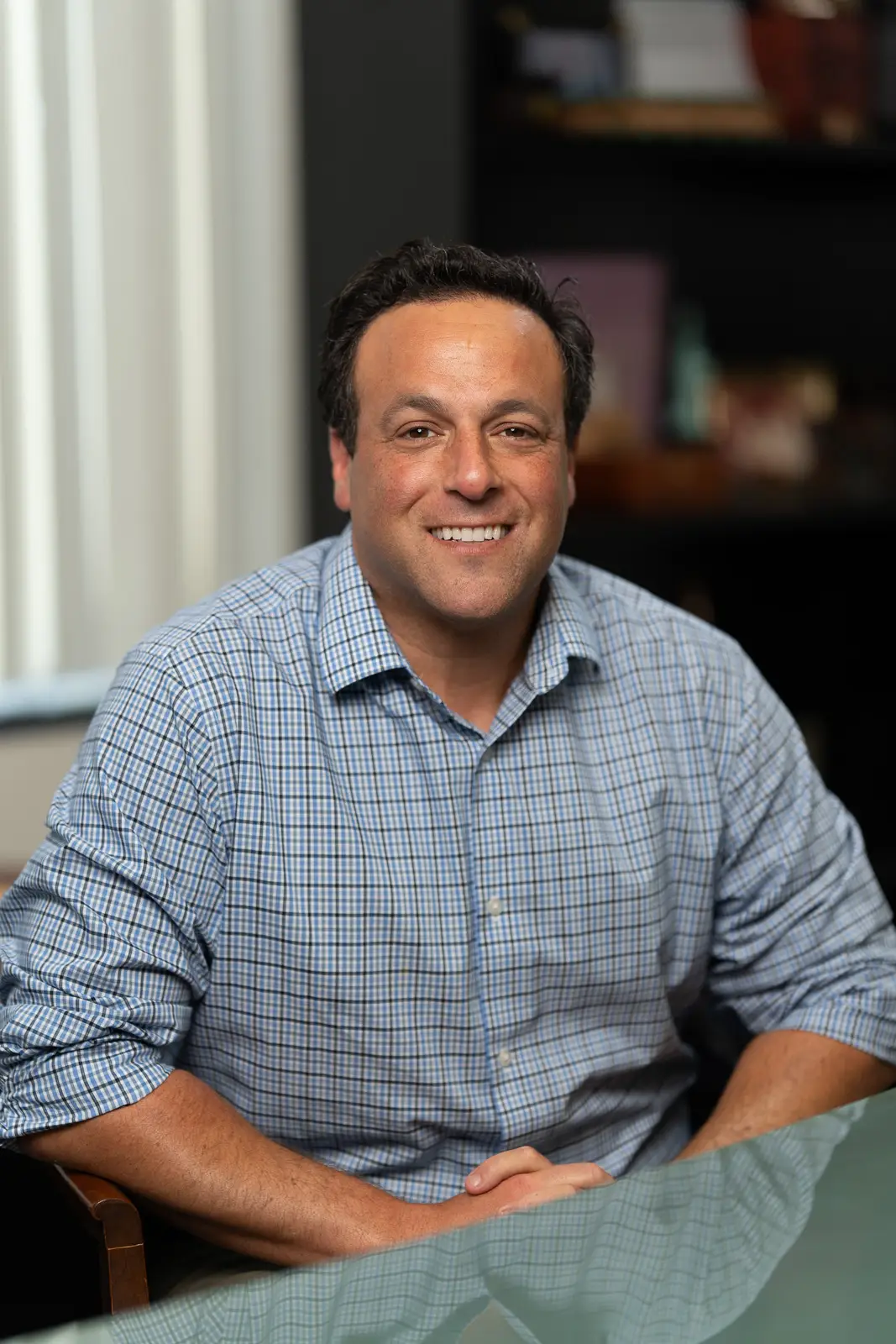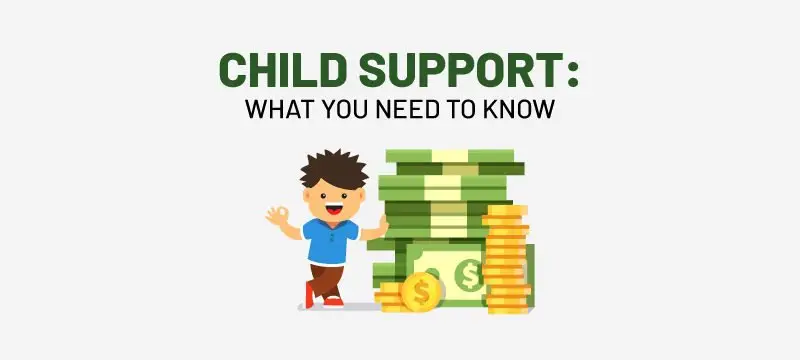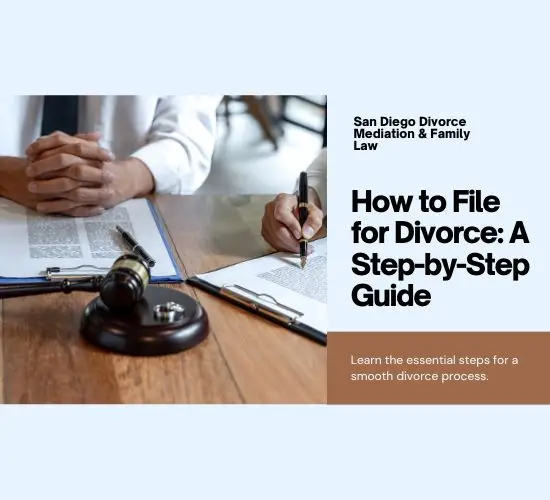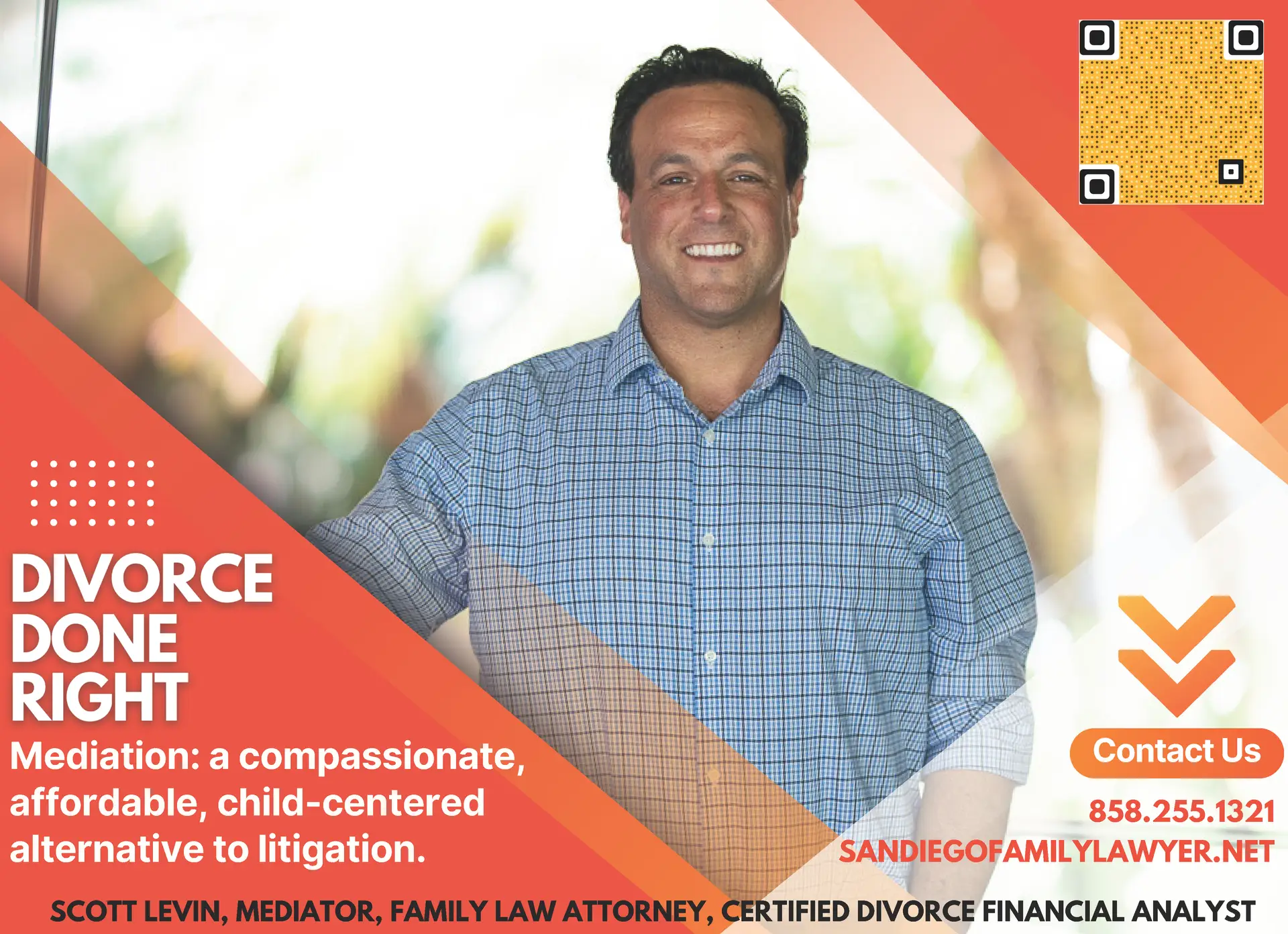Chief Peacekeeper™ Scott Levin shares why he chose to be a full-time advocate for the mediation process for all family law related matters, especially divorce.
Chief PeaceKeeper™ Scott Levin 0:01
Hi, everybody, I am excited to be here with Scott Levin, who is the principal of San Diego mediation is that the correct name?
San Diego Divorce Mediation, Divorce
Jill Barnett 0:14
Mediation, right. And Scott has so much great background for you guys that we’re going to have to get through a lot of this quickly because he’s just, he, what caught me about what he called himself was the chief peacekeeper™, and in divorce, that’s really a wonderful way to look at it. So I’m really excited to talk to Scott today. Scott, can you just give a little bit about your background?
Chief PeaceKeeper™ Scott Levin 0:46
Yeah, so my name is Scott Levin. Thank you, Joe, for having me. I’m excited to speak with you once again. This time, you know, with recording, but where we’ve spoken, obviously, and become friends. So thank you for having me. But yeah, so my background, I’ve been a lawyer since 2004. And in the state of California, for the first number of years, I was a litigator, and then eventually a family law litigator. And but in 2012, I had my first son, the first of three boys, and at that point in time, I literally just couldn’t continue a litigation practice and family law. Even though I was very successful, and voluntarily, you know, you know, blessed, I just felt that I was doing unnecessary harm to a lot of my clients. Because even if I was a good lawyer, and focused on, you know, trying to resolve cases as quickly as possible, it all depended on who the lawyer was on the other side. And if that lawyer was a bad lawyer, there was nothing I could do to stop the fees from being ground. And the time from being elongated, like the average litigation to worst-case right now is over two years now in San Diego. So, I mean, it’s just a really long-drawn-out process. So in 2012, I decided that I was never going to enter the litigation realm again, and I’ve transitioned my practice entirely to mediation. And over the last eight or so years, I’ve been the chief peacekeeper™ moniker I came up with, and it’s all about, you know, basically, both parties to a divorce will engage my services. And we will help them through the mediation process, resolve their disputes, and, you know, try to come up with a fair and equitable distribution of their assets and debts and come up with a parenting plan and all that good stuff. But we do it all out of court. And I feel like it’s really worthwhile work, something I can be proud of. And you’ll see in the background there, sorry. That’s fine. It’s so cute. It’s COVID. Right? Nothing I can do about it. But that’s my little list of three bashing my dog. But yeah, so I’m happy to be here and talk about an advocate for the process of mediation.
Jill Barnett 3:23
Great. So you said the average divorce that’s litigated is two years, how long is the average divorce? That’s mediated?
Chief PeaceKeeper™ Scott Levin 3:32
Yeah, so it’s interesting. In my practice, I typically work 90% of my clients do the work of the divorce you know, figure everything out, and come to a signed agreement within five weeks of starting with me That’s awesome. Now there is like insanity in so in California and other states there’s some states have this and some states don’t there’s a six month waiting period for how for when you when you’re the earliest your marital status can terminate. Excuse me, but the work of the divorce, you know, all that, that period of uncertainty? That’s so scary for people like it, can I afford to live can’t know, where will my kids be? Will I see my kids? will I get support? Or how much support will I end up paying. that period of uncertainty that breeds problems and fighting during the litigation process is only four or five weeks with me, typically?
Jill Barnett 4:38
So how do you get people because, you know, most people are not thinking they’re going to be getting this done in four or five weeks. How do you get people to do that?
Chief PeaceKeeper™ Scott Levin 4:49
I meet for 90 minutes. I do five, I have a package as cheesy as that sounds. But you know, one of the things that I think is important that Is that, you know, most people going through a divorce unless they’re sophisticated in business, this is usually the first experience they have with an attorney. So they don’t really realize that every time they call their attorney, or every court hearing that their attorney has, or every email, email or text these days, or whatever they’re doing you’ve Venmo message, who knows what they’re up to, you know, their billing by the minute. And, and the fees, the that’s the uncertainty in the fee structure breeds a lot of scariness to clients, I believe. And I and I lived through that. Because, you know, although I was doing my best to control fees, myself, and my practice, that’s how I made a living. So you know, we build, you know, just like everybody else did, and it was sad to see people when they saw those bills, they were like, Oh, my God. I’ll give you a great example. A great example, horrible example. But one of my clients is in litigation. I remember this, this was like, maybe late 2011, right before I switched my practice to mediation, and they, their daughter didn’t come home with her backpack. And so she called me, and this was during the divorce. And she said, hey, my daughter didn’t come back with a backpack. And I said, Okay, and what do you want me to do about it? And she said, Well, can you find out where the backpack is? And I said, Sure, I’ll try to find that with a backpack is, and so I called the other lawyer because you know, I can’t call the husband in this case. And so I called the lawyer and he wasn’t in. And he called me back like three days later. And I wasn’t in and I think I eventually emailed him, like one or two days after that, and he like me back. And we finally he understood what we were asking for. And so then he finally initiated contact with his client, probably about a week or week and a half after my first attempt to call him. And like maybe another 678 days went by, and he called me back and he said, Yeah, the backpacks at the husband’s house. And I said, Okay, well, can we try to make sure that she gets she returns home with the backpack for now? He said, Yeah, absolutely. I’ll relay that message. Well, he, I asked him what he was going to bill for all that he was going to Bill 1800. And my bill was 750, Oh, my gosh,
oh, they spent 20 $500, figuring out where the backpack was. And you know what, it’s a really inefficient way to communicate. So I feel like, during the mediation process, one of the great things about mediation is that you can learn to communicate in a new way with your spouse, or soon-to-be ex-spouse, you know, you’re in a room or these days in a virtual Zoom Room. And in, you know, one of the rules that I impose on people is that when someone’s speaking, you have to listen. And I’m not saying fake listening. It’s not the listening that I often do with my wife, where I’m waiting for her to stop. So I can start speaking, it’s realistic, like, stop, write down, if you have something to say write it down. But you’re going to listen, and then respectfully, let that sink in. Think about it. And then if you have something to say to it, you can say to but there’s no longer countering, you know, you guys have gotten to this point in the relationship where you’re, you’re getting a divorce, so there’s no reason to, you know, counter the other side, or, you know, try to discredit them, because this is what they’re feeling. And you need to understand how to communicate with this other person, and especially if you have kids, if you don’t have kids, I guess, burning to the ground, if that’s what you want to do. You know, I mean, I don’t I think that showing compassion to people. And you know, when you look back at your life, and you’re, you know, 82, and you’re on their porch, you know, showing compassion, even if you didn’t have kids, to your ex-spouse, and showing them being gracious and loving, and leaving the marriage, how you came into it, you know, together. You know, it’s just another feather in your cap, you know, for being a special person. So I forget what your original question was, but I think it was a how do we prepare people to get ready? Well, really, you know, it’s an advantage of mediation, because elongated, the long process of litigation is really harmful, I think, to people, so just getting their future organized now, is really important. And I often tell people, you know, undertakes self-care if you’re going to need to get back into the workforce or if you’ve, if you’ve been underemployed and you’re going to now need to be, you know, fully employed, you know, meet with, we meet with specialists that can help you understand, you know, the market and your skills and start, you know, applying for the right type of jobs that you’re going to want to do. Not that you have to do it. You know, if you’re out of shape like me, then you know, start, you know, feel better about yourself, the more you can do for yourself in this process that gets you focused on your on having a better future, the more right in minded you’re going to be, as we negotiate these tough things during mediation,
Jill Barnett 10:19
right. So it sounds like you really don’t allow them to talk about the past and really, you know, talk about defending themselves or, you know, you just focus on what they need to get done and to be respectful, and that gets the most of the time to the place that they need to be. do you advise people initially to meet with an attorney or just come to you first?
Chief PeaceKeeper™ Scott Levin 10:45
Well, I definitely most of my clients have consulting attorneys that they that will, either at minimum review the agreement that I draft, you know, once we have an agreement on every aspect, then I’ll draft their what’s called the marital settlement agreement, which contains all the things that they’ve decided upon. And I encourage people to at least have that and if they, if they can’t afford it, then I make one of our meetings, literally reading through the agreement together so that I know that these two people have read it and understood, you know, what’s in it. But, you know, other things that a consulting attorney can do, or, you know, advise clients, you know, about what they should be asking for what’s reasonable, you know, in terms of, you know, what they want out of, you know, certain assets or debts or parenting plans, but I honestly, you know, I don’t I think it’s better when they start with me. Because one of the great things that my litigator friends are, you know, really good at is, is setting unrealistic expectations. You know, the law is pretty clear. In California, at least I’m sorry. Sorry about that. That’s okay. You seem rambunctious again, COVID, what can he do? Um, so, you know, in the law, certainly, I mean, if Jeff Bezos and his wife can get a divorce in mediation, with, you know, without ever filing anything public in the court system, you know, anyone can do that. It at least in terms of their finances, I often think that my clients, I strongly advise my clients with kids to meet with a parenting expert, someone like yourself that can really give them advice, gel about, you know, what’s the best parenting plan for us given, you know, all these circumstances unique to us, and our kids being these ages. So that’s really something that I kind of insist on, if that if it’s at all possible because I’m not a psychologist, I’m not a mental health professional, I can certainly, you know, take down the parenting plan that the two people bring into the room and agree with and I can bring up other options and things like that. But, you know, I think that meeting with someone, one or two sessions to talk through a parenting plan is really good money, or really, well-spent money for people, but most of my clients do have attorneys, but you just have to be you know, you have to, you have to try to find ones that are mediation friendly if this is the path you’re taking, and that isn’t going to advise you to do things or say things that will blow up the mediation and result in you going in spending way more money and litigation.
Jill Barnett 13:36
Yeah, that’s so important, because mediation friendly attorneys, like people, don’t understand like, there are different attorneys that are friendly to mediation and who aren’t. And it’s very important that you find that because if you find the other one, you’re gonna be, you know, probably not able to mediate.
Chief PeaceKeeper™ Scott Levin 13:54
Yeah, I mean, if they if you really, I just finished a book, our happy divorce, I don’t know if you’ve read that yet. It’s a, it’s a really great book. But basically, the whole story was, you know, basically, that these two people took ownership over their own futures, because everyone that’s going through a divorce knows what’s best for them, and their spouse and their kids, more so than someone that somehow passed the bar exam. And in family law, probably barely passed the bar exam. You know, and or passed it on the second or third time, which there’s nothing wrong with that. But, you know, in family law, it’s a very tough place to practice. There’s a huge burnout rate and family law. So like people that start in family law or that practice and Family Law at one point are a lot of those people are, are dying to get into another practice of law if there are any other options, because you’re dealing with such emotional things and, you know, really, you know, can be very trying so you don’t feel good about it after you’re done. So you’re not dealing with like, you know, typically you’re not dealing with, like the top graduates from the top law school. To me, of course, as an exception I come from the reason I was in family law is that, you know, I have a background that like, led me to, to family law, and there’s certainly a lot of people like me that wanted to, you know, right wrongs in their past or whatever, you know, in their youth that they think they can make a difference in family law. So, certainly a lot of people like that. But um, you know, you just have to find mediation-friendly attorneys, and a lot of mediators who are attorneys, like myself will review agreements for people and give advice. So those are always good options to start with. Yeah. Okay.
Jill Barnett 15:44
Um, so I have a question about what if someone thinks their spouse is hiding assets, like if Can you mediate? You know, what do you do in mediation, if that comes up?
Chief PeaceKeeper™ Scott Levin 15:58
Yeah. So really, there, it’s a tough, tough issue. So I tell people, what, during my consultations, so I do my consultations with both, you know, both parties to the divorce, and they’re free if both people come. And so the thing I tell people is that if you’re going to hide assets, don’t go down in mediation, because it’s the one thing that will blow up a mediation. So, you know, I can never be 1,000% sure, if there’s a dispute about, you know, where’s that extra million dollars, or, you know, I thought we had a Lamborghini, you know, I can never fully prove that that doesn’t exist, what I can do is I can take my 20 years of experience, and I can call bs on people. And because I’ve learned them in the console, that if you engage our services, because I’m really an advocate for mediation, in my consultations, more so than trying to get people to engage me, I’m plenty busy. So I just want them I tell people, you need to feel comfortable with your mediator, like when you hire me, you get me. And so I’m laid back. I’m a family person, but I also am a straight shooter. So if I feel like someone’s lying to me, you know, I’m, I might just tell them, I think you’re not telling the truth. Because, you know, I’ve been doing this for 20 years. And I just don’t think that this is, this is what what you’re saying it is. And so blow it, you know, there are things that we can do, though short of that, in mediation, there’s something called a certified divorce financial analyst, I’m actually one of them. But, but we can engage an independent certified divorce financial analyst, it’s basically someone that’s proven that they know all the financial aspects and ramifications of divorce. And they’ve taken a certain test to prove that and so that they got they now have a CD, fa certification. So I have that, and I do that work for my clients. But when there’s a dispute about, like, Where’s that money, or what happened to it, then I suggest that we bring in a third party independent, who runs through, you know, all the statements, and, you know, you know, give me 10 years of statements for the accounts that are at issue. And they’ll basically plot through and try to find the holes. And if and when they come back with their report, you know, then I know, both parties kind of sign on to say, Okay, well, I’m sorry. That’s happening. I’m sorry. Can you can you edit? I hope I can. I don’t know, my wife must have gotten on the settings. But um, so, you know, if both parties are hiring a person for the CD as a cdfa, then they’re willing to accept that person’s recommendations. And then we kind of agree that we’re going to accept their recommendations wherever they are. But yeah, financial hiding of assets. Definitely is the easiest way to blow up a mediation.
Jill Barnett 19:13
And isn’t that something that a forensic accountant also does? Is that how’s that different than a cdfa?
Chief PeaceKeeper™ Scott Levin 19:20
or CD? I mean, a forensic accountant is probably what, like litigators typically will use. I mean, they’re very expensive. I don’t typically, I’ve never had a forensic accountant inside of mediation. Perhaps that’s just like, you know, says something about my practice, but I’ve never, you know, I just rely on the cdfa and friends of mine that I’ve developed in this industry, that I feel like, you know, if they can’t find it, then you know, these two people either need to litigate that issue or, you know, or just agree, you know, they just agree that you know, What are the findings? Right? Another thing we do in mediation is that if you can’t agree on everything, you can still hold your mediation agreements, like let’s say we’ve, we figured out everything but you know, two accounts or everything but a pension, you can basically write up the whole agreement that you’ve done in mediation, and then you can hire attorneys just to litigate the things that we couldn’t figure out. So you still so you’re basically limiting the scope of the litigation. So it’s much faster and much less expensive because you’re not allowing your attorneys to open up to the whole world of your divorce, you’re just saying, look, these four things we could not figure out in mediation, and we’ve agreed to litigate these at but basically submit the marital settlement agreement for the rest of it is the one that we did in mediation. So that’s also an option that
Jill Barnett 20:54
I’ve never known that that is a really great option for people who, you know, don’t want to litigate everything, and they can get everything done, except for a couple of days. That’s awesome.
Chief PeaceKeeper™ Scott Levin 21:07
Yeah, it’s, it’s, um, it does work really well. It helps. And I and I also tell people mediations totally confidential. So anything that we do in mediation can’t be used in litigation later. So if you can’t figure out what your result is like, if you can’t, if mediation is a failure, anything discussed in mediation or anything agreed on can’t be then taken over to the litigation process, right? Oh, you’re there’s basically no harm no foul if you start in mediation, which I suggest everyone, except, like, if there’s like a lot of abuse, you know, or physical issues. Those are hard to do in mediation.
Jill Barnett 21:48
Yeah, no, when there’s a power differential. Yeah, that’s hard. But I No, no, I mean, I do too. I’m pretty much. That’s what I tell people if at all possible, and you can meditate, why would you not? Because there’s something called collaborative divorce. A lot of lawyers talk about that. But it’s not the same as mediation. It’s still using two lawyers.
Chief PeaceKeeper™ Scott Levin 22:13
Yeah. And it’s, I mean, I’m a fan. I’m I’ve been collaborative, collaboratively trained. I was, and I did that way back of my 2013. So like, I mean, I don’t think that was the beginning of collaborative, but like, it wasn’t, it’s, you know, obviously grown since then. But collaborative is an interesting process, you know, you have to find the right professional still, even though so Collaborative Law basically is you engage you each has a lawyer, and the lawyers come into essentially the mediation practice into the mediation room, and you have a mental health professional there, and, and possibly a mediator and possibly a neutral, financial neutral. So but basically, the key to it is that the litigators, swear that they will not represent the parties in litigation, should the Collaborative Law process fail. So they’re incentivized to see it through. But that doesn’t mean that you really, I mean when I went to my collaborative training, it was like I said, many, seven years ago, though, I was I had lunch with a bunch of the lawyers that were at the table, you know, I didn’t know any of them. And a bunch of the old school ones was like this bunch of hooey doesn’t work. And so like, even though they’ve been collaboratively trained, it doesn’t mean that like you’re getting someone that’s fully in the nose. Yeah, you still need to pick the right professionals to try it. Right. Yeah. No, and any of those do work in collaboration.
Jill Barnett 23:52
I do work with collaborative attorneys, but not in that setting where everybody’s together. Um, I haven’t done that they’ve referred people to me, and, and, and they do have a lot of the ones that I’ve worked with. Aren’t this, you know litigators who, who want who really want to increase fees. So there, they’re good to work with. But, I mean, if you’re sitting in a space with two attorneys, a divorce, a financial professional, a mediator, and a mental health professional, that’s a lot of money you’re paying.
Chief PeaceKeeper™ Scott Levin 24:28
It’s very expensive. It’s actually I think it tends to be as or more expensive. Yeah, that a litigated process. It’s way more expensive than mediation, right. If that’s what makes if that’s what gets you to Yes, then that’s a worthwhile investment. And so, you know, a lot of my clients that when they first call me, they’re worried about, like you were saying earlier, like, you know, one person has way more expertise at the finances or way more knowledge of the finances or, you know, they’re just worried about things and they just wonder if they can, if they’ll make a fair agreement, you know, for themselves or if they’ll be kind of bullied by just having one professional in the room. And so, for those cases, I oftentimes bring in another female, another female mediator friend of mine, and we kind of tag team the process together, which I think makes those clients feel better. And plus, the woman that I usually work with, we have a really great Ying and Yang, like I’m 42 and have a young family married. She’s 62 had a really, really, really tough divorce have had older children that kind of went through that process. So she has a lot of compassion and desire to help young kids avoid that, the nastiness of it, you know, now, so we just kind of come in together. So that’s something I’ll do if I feel like that will help clients, you know if they’re scared about just having one person in the room?
Jill Barnett 25:59
Yeah, that’s great. It sounds like you have a lot of resources at your fingertips for people, which is so helpful, you know when you’re going through this. I just have one other question. I mean, I can talk to you for hours, but I know you have your son and things. Yeah. Sorry about that again,
Chief PeaceKeeper™ Scott Levin 26:19
no, no, that’s okay. background, there’s nothing I can do.
Jill Barnett 26:23
No, no, no, that’s okay. Um, what do you have, like one tip you can give people when they’re starting out, you know, just in terms of like, how to how to deal with this in the best way for, for your, for their family? Yeah.
Chief PeaceKeeper™ Scott Levin 26:39
So I really just something you said just a second ago, Joe, which is basically known when you go into I think we talked about this last time we spoke, but my belief is that you should build a team. And because you’re doing if you’re doing mediation, or you’re giving mediation a shot, you’re already only going to pay the mediator like roughly 5% of what you guys would have both paid to attorneys. So you have a lot of money to play with. Not that I’m just trying to spend people’s money. But you know, when you go into the emergency room with your kid, or yourself and you have, you know, your arm is busted, you fell off a bike, you know, you don’t immediately see the surgeon, you first you see a nurse, and then you see the emergency room doctor, and then you see the radiologists for the X rays and then are the radiologist then evaluates those x rays and there’s X-ray tech helping you then if the surgery is needed, you bring in the surgeon, but then after the surgeon, you wake up, you’re with nurses, you’re you then go into physical rehab at some point, you know, with physical therapists or chiropractic, whatever it is. And then, of course, you have your family and friends that are helping you. So you build a team, naturally medical, the medical industry has transitioned to a team approach. And the divorce process traditional divorce is one litigator is your whole world. And that person is the surgeon, the emergency room, Doc, the chiropractor, the physical therapist, the nurse, and it’s just not a good approach. I mean, no matter how much you trust this person, this person, no matter how good their reviews are, look, there’s a reason that like divorce litigators, and they’re tough, tough, tough way to earn a living, I sympathize with them. And I was one. But you know, there’s a reason that the reputation of that industry is failing. And in my opinion, it’s because if you’re just relying on that one person for everything, and that one person doesn’t know what’s best for you, if you build a team, hire jail, hire a mediator, hire a certified divorce financial analyst, hire a parenting coach, you’re still all of that will add up to 10,000. Right? Or maybe you’re going to pay in, in San Diego, the average person’s paying 52,000 for one lawyer. So you’re still way ahead of the game. And I’m not trying to spend people’s money, but I’m just saying, You rely on each professional to give you guys give you and your spouse a collective opinion about where you want your futures to go, then you’re much better off, you’re much more prepared, you’re much more educated, you’re going to feel much more confident about the deal that you’ve you’re about to make and that and when you sign you’re going to feel like Yes, I have done. This is exactly how I would tell my kids to approach this, God forbid that they’re going through it and 20 years, you build a team, you’ll feel better, and then you get future-focused right away. I mean, there’s a lot of hurt and resentment, especially if the divorce ended in a big blow-up or a discovery of something horrible. But the fact is, is that focusing on that there’s therapy for that right and I Of course, see, there, I’m in therapy. I’ve been in therapy for over 10 years. You know, I was in therapy because I was very financially successful but very unhappy. And I had to figure out what was why was that and that’s where, you know, I trend, you know, eventually transitioned to my practice, it took me a while to take that leap because it’s really a big leap of faith. But yeah, build that team, and be future-focused, you know, staying in the past and fighting about what got you there just isn’t going to do anything to change anything about where you’re at.
Jill Barnett 30:37
That’s great, great advice. And I love your perspective because you were a litigator, and you know, firsthand how that is not the way to go. And so many people get swept up into it because they think the first thing to do is meet with an attorney and then they’re off to the races, you know, so it’s so good for people to have this information. I just hope to get it out widespread really
Chief PeaceKeeper™ Scott Levin 31:04
widespread. But definitely share it as my kids say, like, and subscribe. Hit that button.
Jill Barnett 31:16
I so much appreciate you taking the time to talk with us today and answer so many questions and we’ll hopefully be in touch with people who see this and in the future.
Chief PeaceKeeper™ Scott Levin 31:32
Absolutely. Thanks for having me. I really appreciate it. Thank you.
Transcribed by https://otter.ai

